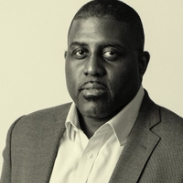 Michael Oliver Love Michael Oliver LoveMr Eazi, aka Oluwatosin Ajibade, is best known as the Nigerian Afrobeats star behind hits like “Skin Tight “ and “Leg Over.” He’s worked with global superstars including Beyoncé and J Balvin and his songs have been streamed more than 4 billion times. More recently, he has been reinventing himself as a serial entrepreneur and tech investor with talent incubator program emPawa Africa, which he launched in 2018, and Zagadat Capital, the venture capital fund he set up in 2021. The 31-year-old returned to the studio this year to make new music with Kenyan-born BBC radio personality DJ Edu as a ‘super group’ called ChopLife Soundsystem whose sound blends Amapiano and Afrobeats styles. 💡 Why did you want to go the super group path with DJ Edu? DJ Edu is not just one of the best and longest-serving DJs from Africa but he is by far one of the best DJs in the world. People don’t know he is also a producer and A&R and we’ve been working together since 2017. He actually leaked “Leg Over” after selecting it as a single, and I thought it wasn’t. So it’s a combination of experience and vibes. 💡 Africa is dancing to Amapiano though it doesn’t yet have a breakout global superstar unlike Afrobeats, does it need one? Amapiano is a dance music genre, so it’s not just about the single superstar but also about DJs/ producers and the clubbing experience. House music and techno started in underground clubs and became the most popular music genres in the world for a long time without necessarily being driven by one single superstar. It was only with the advent of the celebrity DJ and the re-branding of dance music as EDM where that changed. I think we should stop obsessing about breakout global blah blah blah, and just enjoy the music. There are lots of South African superstar DJs and producers already killing it, not just in South Africa but also around Africa and already playing shows everywhere, even in Asia. 💡 Has Afrobeats peaked? No way! I think it’s really on its own trajectory and we will see some amazing growth in the next three years. The Afrobeats sound of today is not the Afrobeats of 2015 or 2016. It keeps evolving. 💡 Should African artists sell their catalogs like their US/European counterparts have been doing recently? I love what’s happening with catalog sales because it cements music IP [intellectual property] as a valid asset class. There is so much opportunity for music from the 50s, 60s, from all over Africa. I’m even trying to buy catalogs. 💡 How are you thinking about integrating language learning AI into your music-making process? To be honest, I think it would be super cool to use AI to write the next ChopLife album. That would be sick! I’m all about embracing new tech. 💡 What sector of tech investment are you most excited about in terms of its impact in African markets? Through my VC fund, Zagadat Capital, I recently invested in Decagon, a company that trains engineers in Nigeria and pairs them with jobs worldwide. You have over 10 million smart, young Africans getting out of university each year in need of jobs. And, as such, Africa has the prospect to become the highest net exporter of technology talent. 💡 What non-music TikTok are you addicted to? Food! You know how many recipes you can find on TikTok?! — Yinka Read and share this interview here. | 





